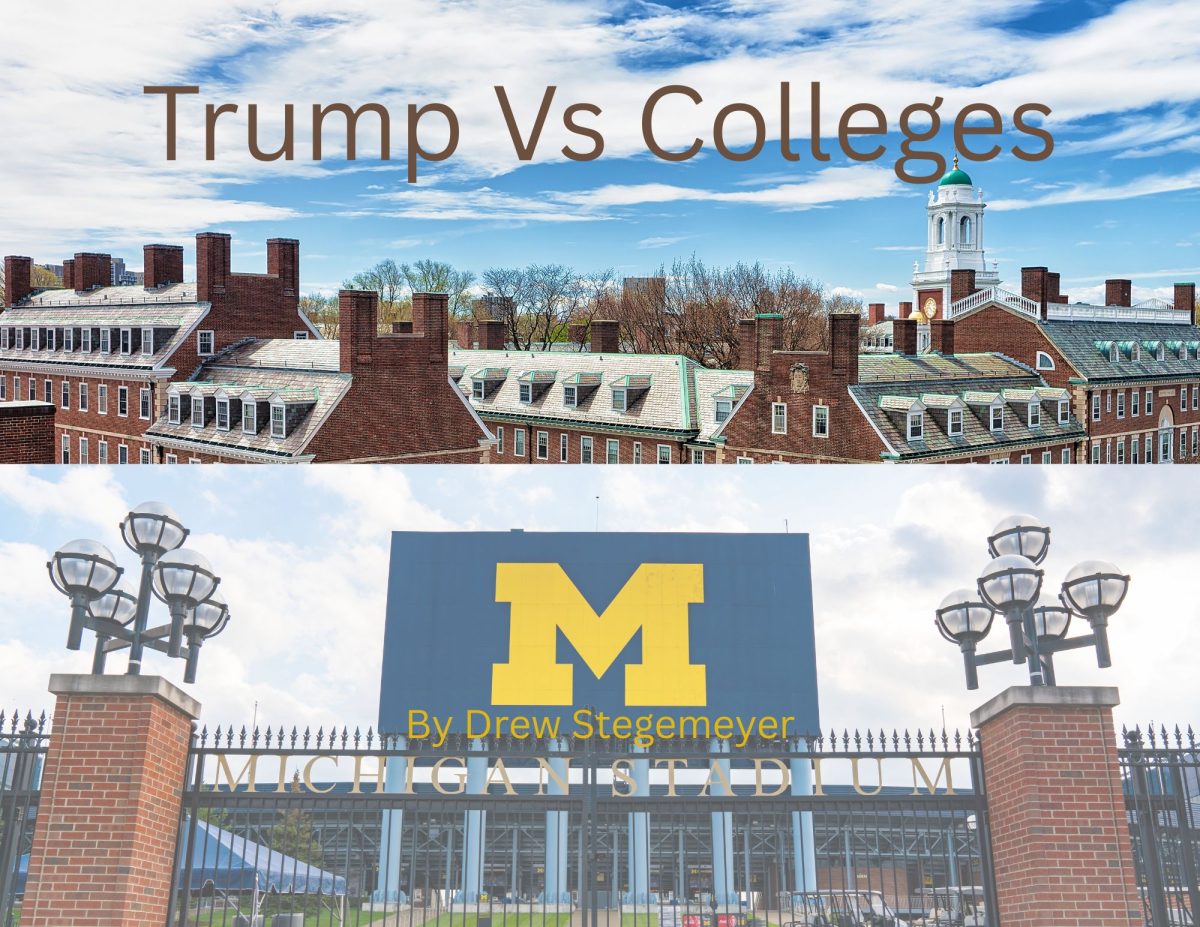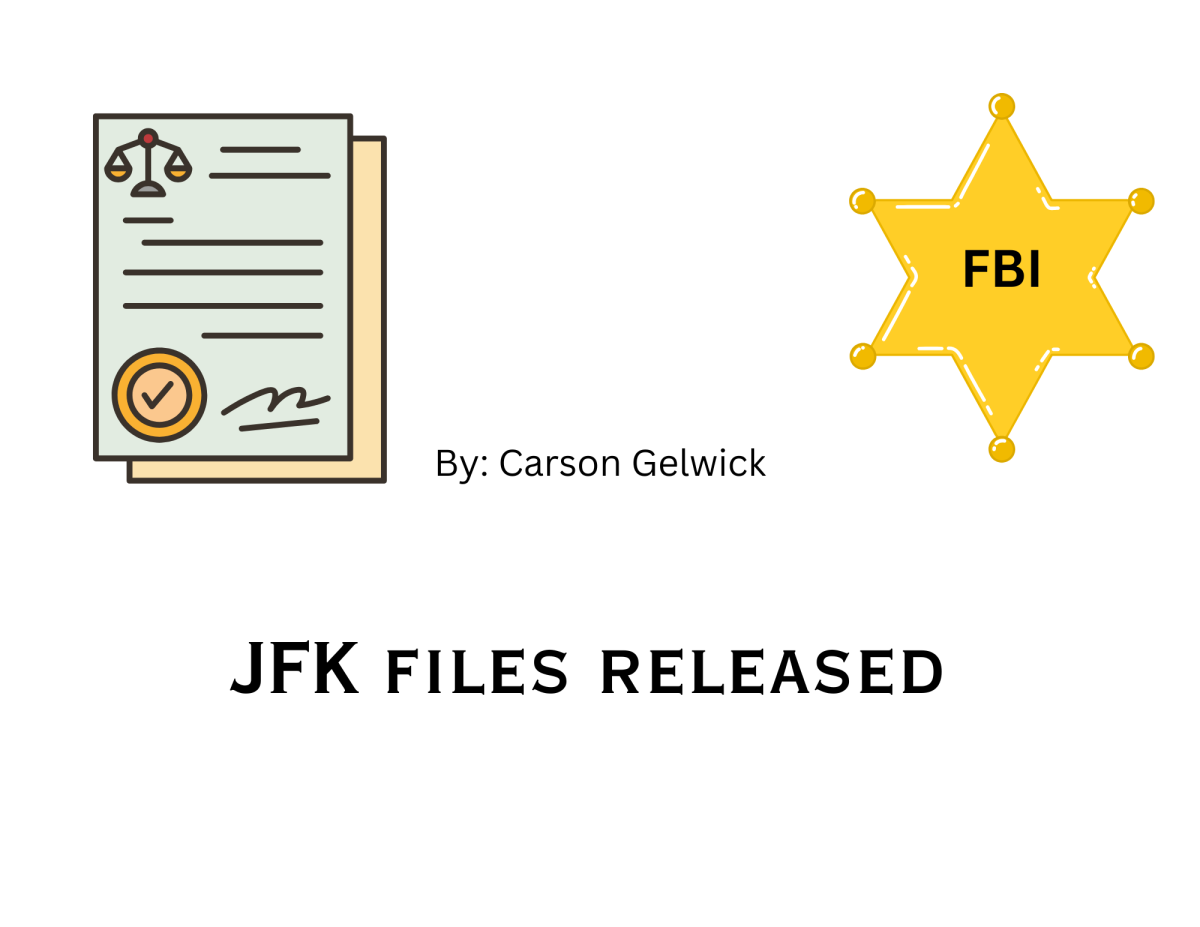Phone usage in the classroom has remained a frequent topic for years on end. Teachers and administrators have implemented various phone restrictive policies, all of which fall short of receiving a student’s undivided attention. The HCPS board has decided to take measures into their own hands for the 2024-2025 school year. The Portable Communication Devices Policy will take effect in Elementary, Middle, and High schools countywide at the beginning of next school year.
The intended purpose of this policy is to maintain a learning and academic environment. Accessing phones and other devices during the school day is seen as a privilege through the HCPS Board of Education; a privilege that has been well taken advantage of. Devices have proven to be distractions that disengage students from learning. The Board believes that phones and other portable devices (such as headphones) should only be utilized as an instructional tool under the teachers’ supervision. The policy essentially states that these devices must be powered off and kept out of sight unless instructed otherwise.
There are different criteria for the different levels of schooling which will be listed below.
DEFINITIONS to understand below terms:
Educational Environment: Anywhere that learning takes place (classroom, library, etc.)
Portable Communication Devices (PCD): Any device that sends or receives voice, text, data, or information (phones, tablets, etc.)
Personal Listening device (PLD): Any device that transmits sounds to a personal user (headphones, Airpods)
Wearable Communication Device (WCD): Any device that is worn on the person that receives voice, text, data, or info (smartwatches, fitness tracker)
HIGH SCHOOL
- PCDs and PLDs are allowed to be on the student’s person but they must remain powered off and out of sight.
- WCDs are allowed on the student’s person but must remain powered off.
- PCDs, PLDs, WCDs may be used on a school bus, but must not be utilized for calls, photography, and videoing (audio can be listened to with a PLD).
MIDDLE SCHOOLS
- PCDs and PLDs may be brought to school but must remain turned off and in the student’s locker.
- PCDs, PLDs, WCDs may be used on a school bus, but must not be utilized for calls, photography, and videoing (audio can be listened to with a PLD).
- WCDs are allowed but must be powered off in the educational environment.
ELEMENTARY SCHOOLS
- PCD’s may be brought to school but must remain turned off and in the student’s backpack.
- PCDs, PLDs, WCDs may be used on a school bus, but must not be utilized for calls, photography, and videoing (audio can be listened to with a PLD).
English teacher Mrs. Christ and Principal Harris have recently been attending meetings with a committee of Harford County Public Schools to discuss this new policy. Below, Mrs. Christ shares her thoughts, opinions, and extra information on the policy.
Q: What are your feelings on cellphone use in the classroom?
A: I think it’s a problem. I see a lot of people not listening with earbuds in their ears. We’re losing a human connection in the classroom with so many people not able to listen. I am ending this year with a lesson on a speech giving assignment. I am kind of tired of speaking and not being listened to, so I wonder what it would be like to have the students speak under the same condition.
Q: Have there been any phone restricting methods you have tried that were successful in getting kids to pay full attention in class?
A: I had a project where we were doing book clubs and I asked students to put their phones in a carrier case, but I don’t know if it was successful or not because some people were so sneaky about it. Some people were good with it, but I didn’t go to school to learn how to monitor cellphone use, and I think that’s the big problem. Teachers don’t know how to handle it because it’s such an epidemic. I have even taken a standup comedy class, and an improv class to try and find anything I can do to keep people’s attention. I feel like more and more teachers have to be entertainers, and there’s no way I’m going to be more exciting or funny than that TikTok that is on the phone. I could be tap dancing up here and not get attention.
Q: What is the HCPS cellphone committee that you are on and who else is on it?
A: The committee is made up of mostly high school principals. Myself and a math teacher at Fallston high school are the only two teachers on it. The committee is not to create the cellphone policy, as it is already created, but it is to enforce it. This is what my perspective is: I can either teach, or I can police cellphones, I can’t do both. I think this is going to be very impossible to enforce.
Q: How will the policy be enforced throughout the school?
A: Is all I’m going to be doing now is walking around and looking for cellphones? That is going to be defeating, and that’s not teaching. Students and teachers are going to have to figure out how it can be on me to put my phone away. Mrs. Harris told us to not distract our lesson by calling out a kid on their cellphone because that takes away from the lesson. To leave it be, and leave it alone is not what teachers are taught in school. We are taught to have 100% of kids engaged in the class, but how do you do that?
Q: How effective do you see this new policy being?
A: Is it going to create a student vs. teacher problem or bring about a teacher against administrators’ problem. Now all these people are getting sent to the office, but the administrators can’t handle that.
Q: Is there anything else you would like to add?
A: There is a teacher shortage. I wonder if this is related to any of that. Do less teachers want to enter education because of how difficult it can be.
While talking to Mrs. Christ, students had their own opinions on the questions as well. Their anonymous answers are below.
Q: What methods have worked to keep you off your phone?
A: Some teachers call out the students when they are on their phone, and it is intimidating. I think it is also the fact that when the work is more challenging you must pay more attention, so you don’t miss a beat.
A: In hard classes, you care about your grade more because the content is more difficult to understand.
A: Some teachers’ classes are very engaging, and not boring which leads to you not feeling the need to take your phone out.
Q: Do you guys think phone use is a problem?
A: I think it’s a personal decision, and their education at risk. It is their decision and their consequence.
A: A lot of the people I see on their phones is typical, and I feel like that is just how they are. They don’t care that much about school and if they don’t then that is their problem.
A: Even without the phones, some people just can’t pay attention in general.
Q: What if there was a grade consequence for every time you went on your phone?
A: It would just make the students not like the teacher. Sometimes you need your phone for school, like if you were taking a picture of the board, and it’s not always a bad thing to be on your phone. If you aren’t going to take your education seriously that is up to you.
Q: Is there anything else you would like to add?
A: It reminds me of the whole bathroom situation. The bathrooms are closed, but kids are still vaping. It’s not stopping anything. The phone problem is still going to be there and it’s not going to stop any kids from going on their phones.
After the interview, Mrs. Christ attended another meeting with the cellphone group. Mike O’Brien, who is the leader of Middle and Highschool performance, emphasized his goal for the group: the WHY. Why are we banning cellphones in the classroom? He provided the book, The Anxious Generation: How the Great Rewing of Childhood is Causing and Epidemic of Mental Illness by Jonathan Haidt, to encourage a deep dive into harmful topics such as behavioral addiction, opportunity cost, and social depravation caused from cellphones.
Mrs. Christ created a survey for a small group of her English 10 students that referenced topics in the above book. One question she posed was, “In what ways do your online activities impact your friendships, your relationship with your family, and your relationships with others?”
Her students shared different ideas on the question, but a three-time reoccurring answer was that it has brought them closer with their friends, yet farther with their family. This comment falls under the opportunity cost effect that was mentioned above. Due to the frequent communication between friends, these bonds are likely to build, and in return the family ties will likely loosen.
The debate over cellphone use is one that is surely not resolved, and further planning and discussion will continue to take place over the summer. The support group is in full force as this year wraps up with their main mission being uncovering the true WHY behind the ban. Surely, administrators and teachers will be looking ahead to the next school year, and how this policy will pan out.






